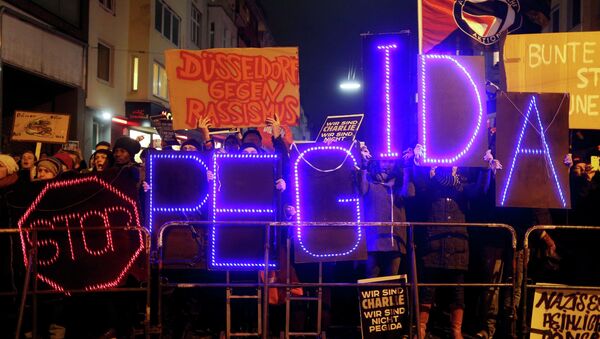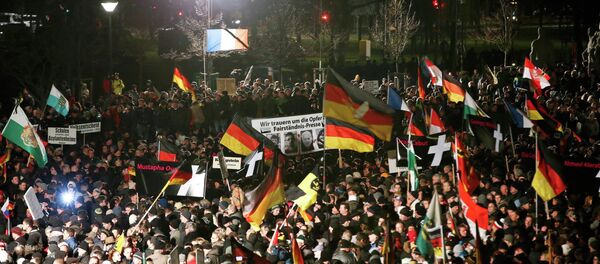Dresden is considered to be at the vanguard of the European high-tech industry, including nanotechnology and microelectronics, which rely heavily on foreign scientific researchers.
Up to 7,000 foreigners currently work in the city, according to Der Spiegel. Yet this number may dwindle due to spreading anti-Islamic sentiment that surfaced in the closing months of 2014, following weekly anti-immigration protests by the controversial Pegida group.
Pegida, which stands for Patriotic Europeans against the Islamization of the West, has been making headlines after drawing thousands to Dresden to demonstrate against what they regard as the Islamic threat to German culture. The spillover of this movement to other cities across Germany prompted parallel demonstrations to denounce Pegida, with all prominent German politicians voicing concern the movement might be courting neo-Nazi elements.
"Unfortunately, TU Dresden has found out the hard way that foreign scientists are leaving Dresden because of the current developments," Institute's Rector Hans Mueller-Steinhagen told the German magazine.
Entrepreneurs could be the next to suffer from the increasing unease that foreigners are now feeling toward Dresden and the region of Saxony in general.
Der Spiegel quoted a local hotelier as saying that a hotel in downtown Dresden was contacted by an Arab family who asked if it was still safe to travel to the city. "We hope that all the uncertainly ceases before Dresden ['s reputation] as a tourist destination is stained," the local tourism trade union was cited as saying.
Pegida maintains it holds no grudge against the Muslim community and merely seek to prevent the erosion of German culture. The next rally will take place on January 19, according to its Facebook page.




